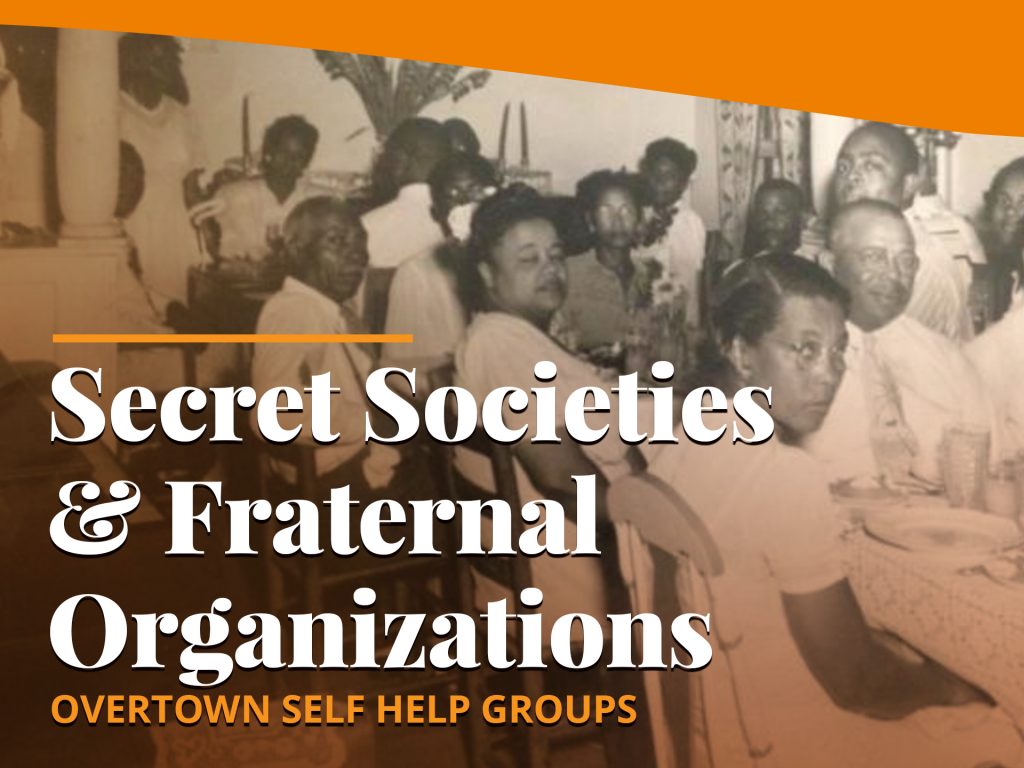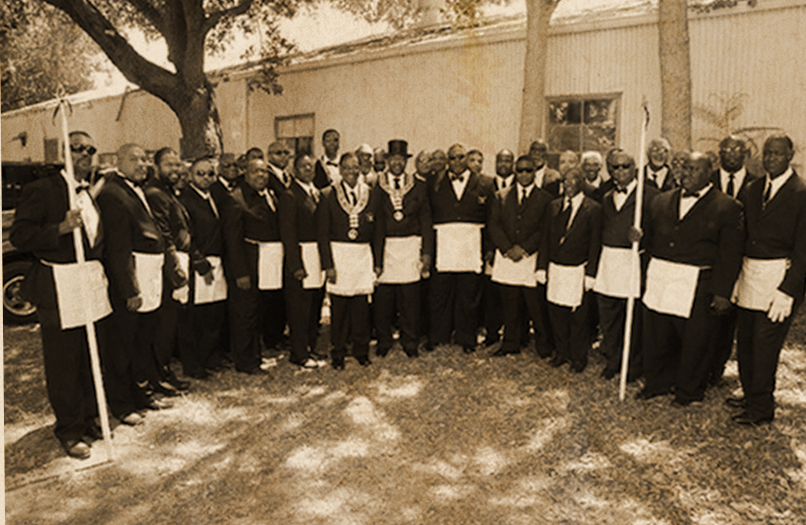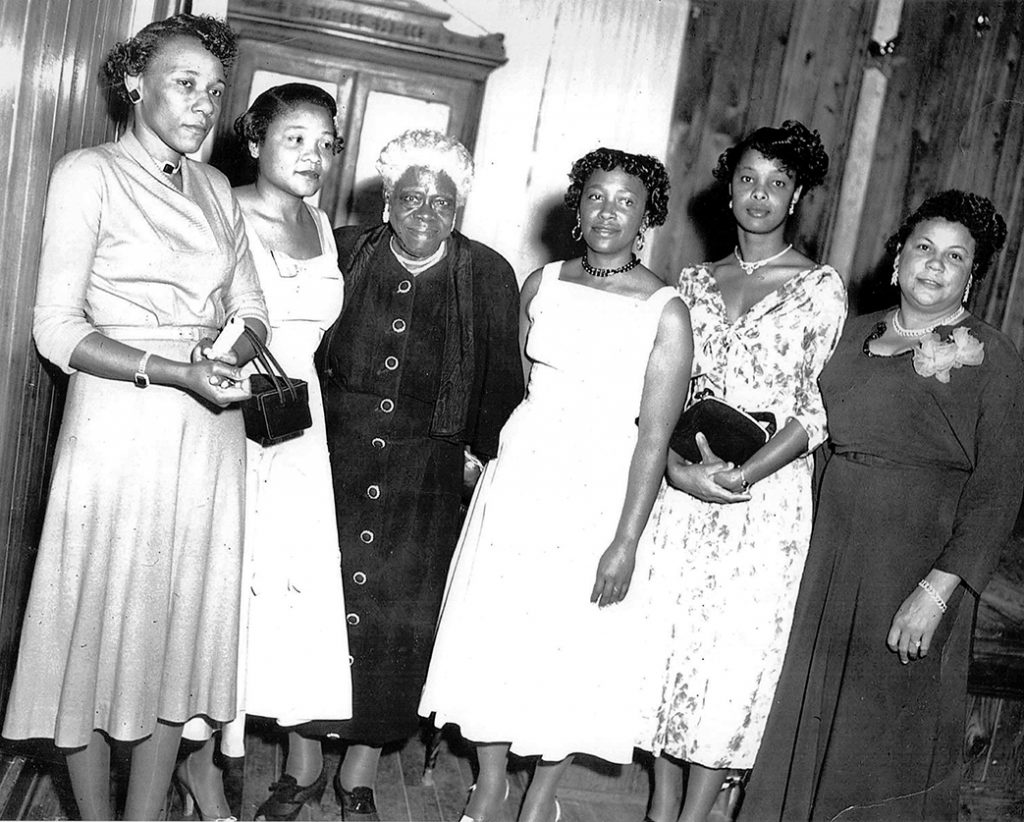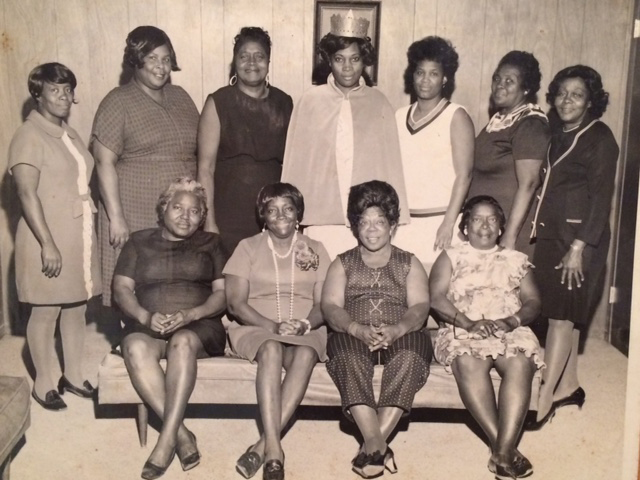
(above) Colored Women’s Service Club. Jetson Grimes Collection.
Self help and benevolent organizations, secret societies and fraternal orders are the bridges that helped African Americans navigate many rough waters after the Civil War. People of color had freedom, but no safety nets such as healthcare, educational opportunities, and financial security.

(above) Sarasota Masonic Lodge #314. Courtesy Lymus Dixon.
Jim Crow laws prevented access to civil liberties, public accommodations, programs, and services. In communities across the country similar to Overtown, African American residents established their own mutual aid groups to provide basic needs to black family members and their next-door neighbors.

(above) Bethune Cookman College (renamed Bethune Cookman University) founder Dr. Mary McLeod Bethune is flanked by members of The Charmettes. Michael Suarez Collection.
Several organizations were established in Sarasota’s first African American community. Some remain active today.
- The Free and Accepted Masons (since 1916)
- Eastern Star
- Household of Ruth, Sarasota Lodge #3538T
- Knights of Pythias, Pride of Sarasota Lodge #104 (since 1916)
- St. Mary’s Calanthe Court #73 (since 1916)
- Organization of Seth
- Colored Women’s Service Club
- The Elks
- Lily White Security Benevolent Association
- Bethlehem Sarasota Grand Chapter Golden Link #87 PHA
- Sarasota Jerusalem Lady Phoebe #87 PHA
- Heroines of Jericho
- Odd Fellows

(above) Household of Ruth, Sarasota Lodge 3538. Michael Dixon Collection.
“On Sunday afternoons, members would ‘turn out.’ They dressed in sharp white dresses with gloves, caps, shoes, and marched from churches to meeting halls. Before child and social services, if a family was burned out for instance, a benevolent organization took care of them.”
Retired Administrator, State College of Florida
“On St. John’s Day, a turn out would be held. If a child was orphaned, it was amazing what those orders would do. They’d help families. The hospital of the Lily White Security Benevolent Association in Tampa was a black hospital, with black physicians, nurses, everybody.”
Yvonne Brown, Retired Educator, Sarasota County Schools
”The fraternal orders were instrumental in securing jobs for African Americans on the railroad. Members were average citizens, unlike college fraternity members. My great grandfather worked on the Seaboard Coastline Railroad in this area. You needed to be a part of the masonic order to work as a Pullman porter or even wait tables on the train.”
Willie Charles Shaw, Former Sarasota Mayor & City Commissioner